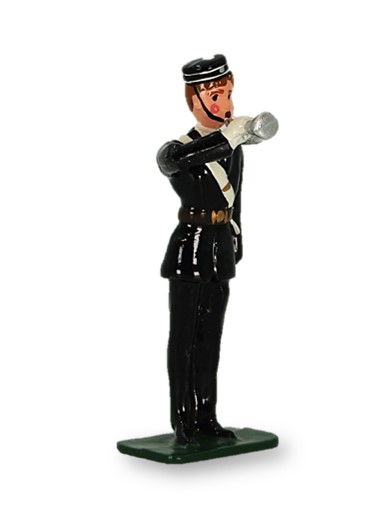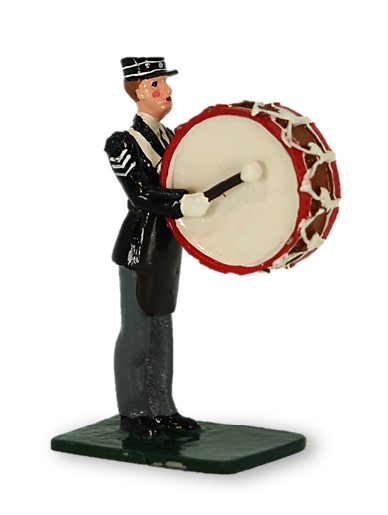Your cart is currently empty!
W McVicker
W McVicker
William McVicker was brought up in a BB family, his father William McVicker was the founding Captain of the 1st Belfast in 1888 (registered in 1889), the first BB Company in Ireland. Whilst growing up surround by The Boys’ Brigade, in his own words, William McVicker recalled in an interview in 1971: My father you see started the Boys Brigade in the 1st Belfast Company and I was more or less brought up in the atmosphere of the Boys Brigade but he, I think, quite wisely felt that it was a bit of an embarrassment to have the Captain’s son in the company itself and while I was actually in close touch with it all I became an officer as soon as I was old enough and I was at Queen’s. I took a degree in chemistry and stayed on and did a bit of research, and one year’s university teaching. Then my father had died and I had the opportunity of following what I had wanted to do myself and I decided to put my whole time into the Boys Brigade. I was seven years secretary in Northern Ireland and then rather to my surprise a call came from London to know whether I would consider coming over in dual capacity as secretary of the BB Overseas and the Life Boys.
William McVicker joined the London staff in 1933 as joint Life Boy and International Secretary, an appointment which was to be of far-reaching significance for the development of the movement, in particular the international expansion of The Boys’ Brigade around the world.
Stanley Smiths visit to Nigeria in 1936 and his subsequent illness requiring a long winter convalescence of 1936-37, convinced the Brigade Executive, to place ‘Empire and Overseas’ extension in the hands of a newly formed ‘Overseas Committee’ serviced by the ubiquitous and capable McVicker. Henceforth McVicker was to become the British Brigade’s principal traveller to distant lands. In the proceeding years McVicker engaged in eight overseas trips, each trip lasting up to three months at a time. The focus of the trips was to start to ease the Brigade overseas into self governance and ease the financial burden on the BB in the UK.
The significance of McVicker’s partial transference of Pacific extension responsibility to New Zealand as early as 1944 lay in the willingness with which Brigade Executive now appeared ready to confer responsibility on well-established overseas Councils for the oversight of Brigade affairs beyond their own shores. The 1954 Founders Centenary events held in the UK, brought together representatives from around the world, and the opportunity to start discussions into self-governance, one of the key objectives of William McVicker and the overseas committee.
The Annual Report of 1954-55 lauded the importance of ‘self-governing and self-supporting BB administrations’. Britain was generously pouring huge sums into the appointment of Overseas Organizers. ‘The policy of such appointments’, it was affirmed in 1955, ‘has passed the experimental stage.’ In the session 1956-57 Leslie Rawson was made Joint International Secretary with McVicker, and by the session 1959-60 the BB outside Britain had doubled in eight years.
At the 1960 Brigade Conference in Leeds, discussions were held which led to the signing of a document three years later to form the World Conference of The Boys’ Brigade at the Brigade Conference meeting in 1963, the 80th year of the movement.
In October 1966, William H. McVicker, who had received an O.B.E. in that year’s Birthday Honours, retired from full-time service as Secretary of the BB International Committee. Son of the founder of the 1st Belfast Company, ‘Mac’ was considered by many to have been one of the most influential men in the movement. He had been Secretary for the Life Boys’ from 1933 (a post he relinquished to B.M. Steward in 1947) and Overseas Secretary until his retirement. From Brigade Headquarters in London, as development abroad gained momentum, McVicker made tours of the BB overseas in Canada, South Africa, New Zealand, Australia and the West Indies. Many overseas BB leaders have told how ‘Mac’ gave them friendly advice in a paternal manner, keeping the ‘youngsters’ on the rails without them being aware of it, and his humility coupled with his capacity for friendship endeared him to men and women all round the world. Not only was he outstanding in the contribution he made in propagating the B.B. overseas, but he was intimately associated with various aspects of the work in Britain and formed many links between the BB and world missionary societies. His death in November 1975 marked the end of an era in BB history. The immense increase in the BB’s work overseas was ultimately his finest memorial.
Media Files
Tours
The tour reports have been extracted from the BB Gazettes, and are written in the style of the time. Modern day audiences are reminded to bear this in mind, when reading these accounts by Mr McVicker.

